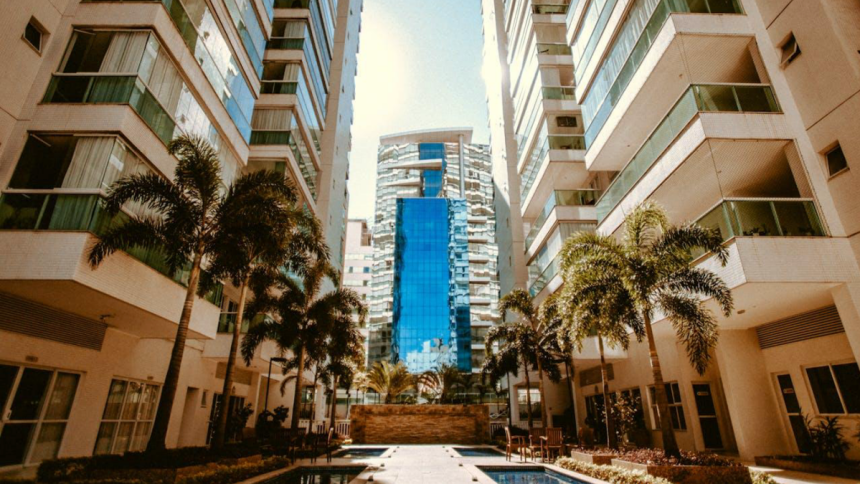Purchasing a new condominium is an exciting milestone for many, whether it’s your first home, an investment property, or a lifestyle upgrade. Condos offer convenience, modern amenities, and often a sense of community, making them an attractive choice for city dwellers and suburbanites alike. However, while the idea of owning a new condo may seem straightforward, the process is often more complex than it initially appears.
From hidden fees to long-term maintenance expenses, the financial pitfalls of buying a condo can quickly add up. Without a thorough understanding of the costs involved, what may have seemed like a dream home could turn into a financial burden. This is why careful planning and due diligence are crucial to ensuring your condo purchase is as financially sound as it is exciting.
In this guide, we’ll explore key steps to help you navigate the condo buying process with confidence.
Understand the Total Buying Cost
Often, the sticker price of a condo doesn’t cover all the expenses you will incur. It’s crucial to factor in additional costs such as property taxes, maintenance fees, and any possible assessments. Consulting a real estate lawyer in Montreal can provide clarity on the full spectrum of expenses associated with your purchase. They can also help identify any hidden costs in the property documents.
Review the Reserve Fund Study
Condo associations maintain a reserve fund to cover major repairs and replacements. Before you commit to buying, ask to review the reserve fund’s status. A robust fund decreases the likelihood of future special assessments. Ensure that the fund is healthy and that there are plans for upcoming expenses.
Inspect the Condominium Thoroughly
Hire a professional to inspect the condo before purchasing. They will check for structural issues, outdated systems, and any other defects that could lead to significant expenses after you’ve settled in. This upfront cost can save you a lot of money in the long run.
Check the Condo’s By-Laws and Regulations
Understanding the by-laws and regulations can prevent legal and financial surprises. Are there restrictions that could affect your living situation or future renovation plans? Clarify these points before finalizing your purchase to avoid unforeseen compliance costs.
Plan for Closing Costs
Closing costs can account for a significant amount of the total purchase price. These include legal fees, land transfer taxes, and other administrative expenses. Make sure to budget for these so they do not catch you off guard.
Consider Future Value and Costs
Think about the long-term implications of your purchase. Is the condo in a growing area? What are the projections for utility costs and property taxes? This foresight will help you gauge potential increases in costs and the overall appreciation of your property’s value.
Understand the Developer’s Reputation
Before committing to a condominium purchase, it’s essential to research the developer’s history. Look into past projects to assess the quality of construction and whether projects were completed on time and within budget. A developer with a poor track record could result in costly delays or unexpected structural problems down the line.
Factor in Renovation and Personalization Costs
Many new condos offer customization options, such as upgrading finishes or fixtures. These upgrades often come at a premium, so it’s important to set a budget for any personalization you wish to make. Ensure you’re fully aware of the costs and if these will increase the overall value of the condo.
Analyze Market Trends
Understanding current market trends is essential when buying a condo. Work with a real estate agent to determine whether the price of the condo reflects its current market value. This analysis will help you avoid overpaying and can prevent unplanned financial strain if the market declines after your purchase.
Confirm the Condo Insurance Requirements
Condo insurance is a necessary but often overlooked cost. Review the insurance requirements carefully, including what the condo association’s policy covers versus what you’ll need to insure personally. This will help you avoid unexpected expenses should damages or accidents occur in your unit.
Verify Potential Rental Restrictions
If you are considering renting out your condo in the future, be sure to verify any rental restrictions in place by the condo association. Some properties limit short-term rentals or have policies that could affect your ability to generate income from your investment, leading to unplanned costs if you had intended to use the condo for rental purposes.
Be Aware of Developer Incentives and Hidden Clauses
Sometimes, developers offer incentives like free upgrades or discounts to attract buyers. While these can seem appealing, it’s crucial to scrutinize any clauses attached to these deals. Often, such incentives come with conditions that may include higher future fees or restrictive terms that could lead to unplanned costs. Ensure that your real estate lawyer reviews all agreements to avoid any surprises later on.
Every new homeowner’s nightmare is facing unexpected financial burdens. By taking these steps, you can protect yourself from unplanned expenses. Always be thorough and seek advice where necessary, especially from a legal expert like a real estate lawyer. By doing so, you are not just buying a condo; you’re investing in your peace of mind.
Embrace these strategies as you embark on your condo purchasing adventure. Remember, an informed decision is a smart decision. Happy house-hunting!
Lynn Martelli is an editor at Readability. She received her MFA in Creative Writing from Antioch University and has worked as an editor for over 10 years. Lynn has edited a wide variety of books, including fiction, non-fiction, memoirs, and more. In her free time, Lynn enjoys reading, writing, and spending time with her family and friends.















